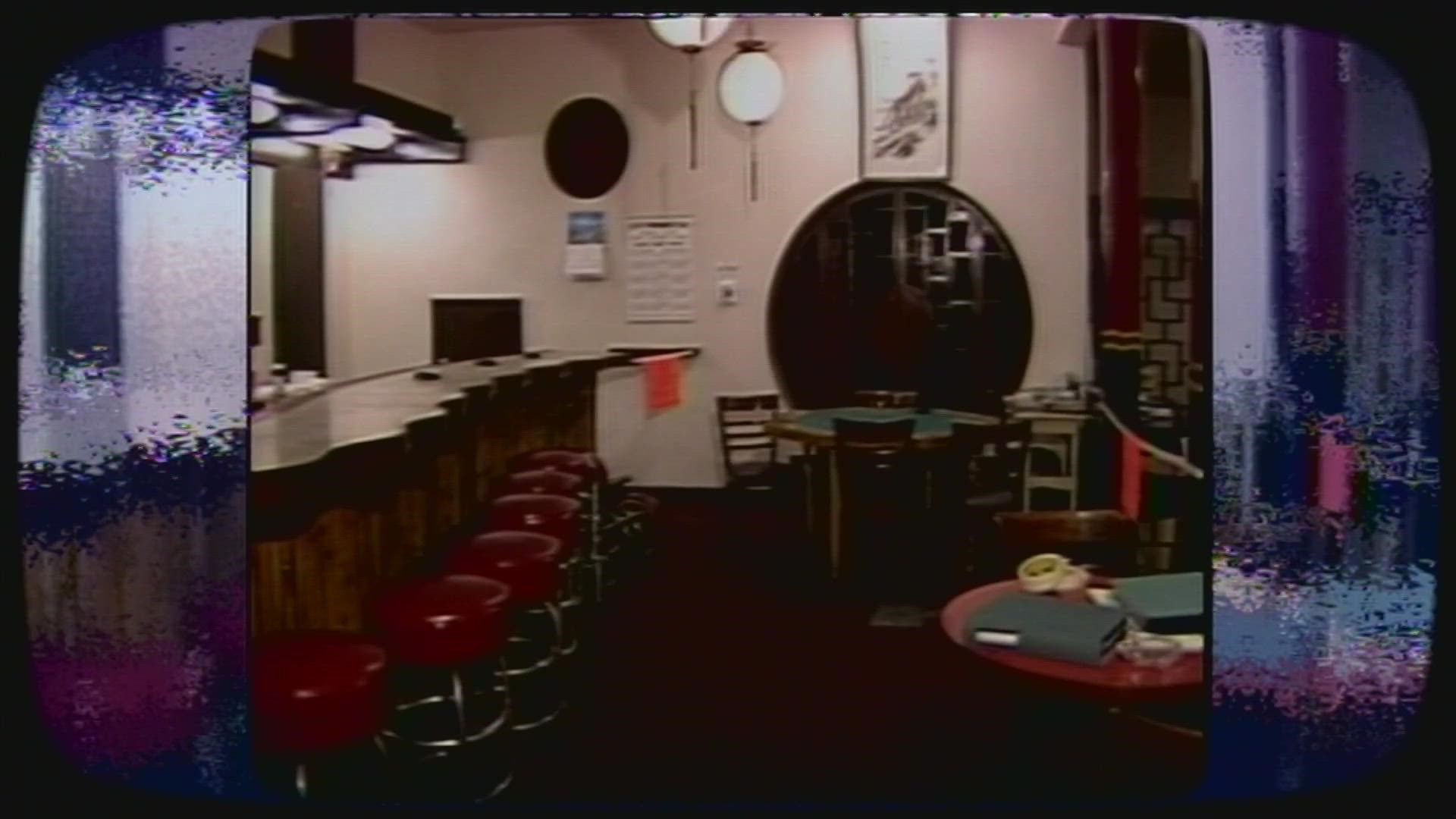SEATTLE — Sunday marks 40 years since the deadliest mass murder in Washington state history, known as the Wah Mee Massacre.
On Feb. 19, 1983, 13 people were killed during a robbery at a gambling club in Seattle’s Chinatown-International District. Two men, Kwan Fai "Willie" Mak, 23, and Benjamin Ng, 20, would later be convicted of robbery and murder. A third man, Wai Chiu "Tony" Ng, 25, would be convicted for his role in the robbery.
The lone survivor of the mass murder, Wai Yok Chin, would later testify he recognized two of the suspects and was able to escape after the shooting.
KING 5 spoke with 69-year-old Ron Chew, a longtime journalist and editor for the International Examiner, who calls the Seattle Chinatown-International District his home.
"Having the Wah Mee murders happen in this neighborhood was pretty gut-wrenching," Chew said.
Wah Mee Massacre
On the evening of Feb. 18, 1983, Mak and Tony entered the Wah Mee Club, known as one of Seattle’s best clubs for high-stakes gambling, had dinner and chatted with patrons. At around 12:30 a.m., the final suspect, Benjamin, entered the club and shouted, “hands up!”
Everyone in the club was made to lie on the floor while Tony continued to buzz in more patrons, nearly doubling the number of people originally inside.
Benjamin and Tony began taking items from the victims including wallets, a woman’s purse, and the club’s cash register.
Afterward, Mak and Benjamin began firing on the victims laying on the floor and the security guard, only stopping once they ran out of bullets. Tony would later testify Mak told him to wait in between the two security doors.
Overall, more than 30 shots were fired at 14 victims, according to Seattle Police Department detectives.
Tony, Mak and Benjamin fled the scene with around $20,000, according to the attorney who represented them.
The lone survivor, Chin, testified he was able to move under a gambling table during the shooting, despite being tied up, and was only wounded. Chin said he later came to after hearing shouting and banging from the club’s security doors.
The victims were identified as John Loui, 48, Moo Min Mar, 52, Jean Mar, 47, Henning Chin, 52, Lung Wing Chin, 60, Hung Fat Gee, 51, Chinn Lee Law, 51, Dewey Mar, 68, George Mar, in his 50s, Jack Mar, 60, Wing Wong, 59, and Gim Lun Wong, 54.
"It traumatized everybody, certainly the Chinese community because we knew a lot of those folks. They were considered our uncles... we grew up with their kids," Chew said.
Wah Mee Massacre aftermath
Mak and Benjamin were arrested within hours and charged with multiple counts of murder and robbery. Tony remained at large for nearly two years.
Tony was eventually found working under the alias Jim Wong in Calgary, Alberta and was captured in October 1984.
Benjamin was sentenced to life in prison without the possibility of parole in August 1983. Mak was sentenced to death in October 1983. Mak’s death sentence was eventually overturned by the Washington State Supreme Court in 1991, but he was resentenced to life in prison without the possibility of parole.
Tony testified Mak threatened to kill him and his family if he didn’t participate in the robbery. Tony said he was told to wait in between the club’s two security doors at the time of the shooting.
Tony was sentenced to 30 years to life in prison in April 1985 and was acquitted of murder. Tony was denied parole five times and served 30 years before being released and deported to Hong Kong in 2014.
The Wah Mee Club was shuttered with its doors padlocked. A fire destroyed the west side of the building on Christmas Eve 2013 and the owner demolished the remains of the club. An affordable rental housing unit was constructed in its place.
Chew says the media coverage of the massacre at the time, and even in recent years, has perpetuated stereotypes and misrepresented what the Chinatown-International District community stands for.
In that same vein, Chew believes the neighborhood is not getting the support it needs.
"We still struggle with issues of poverty down here, crime and substandard housing," Chew said.
As Chew reflects on the last four decades, he hopes a tragedy like the Wah Mee Massacre never happens again. He also hopes the place he considers to be his home will continue striving to reach its full potential.
"Forty years is a long time, the neighborhood has changed a lot but it still struggles to find its voice and to be listened to in a way that it deserves to be," Chew said.
This article was in part written with information provided by HistoryLink.org.

